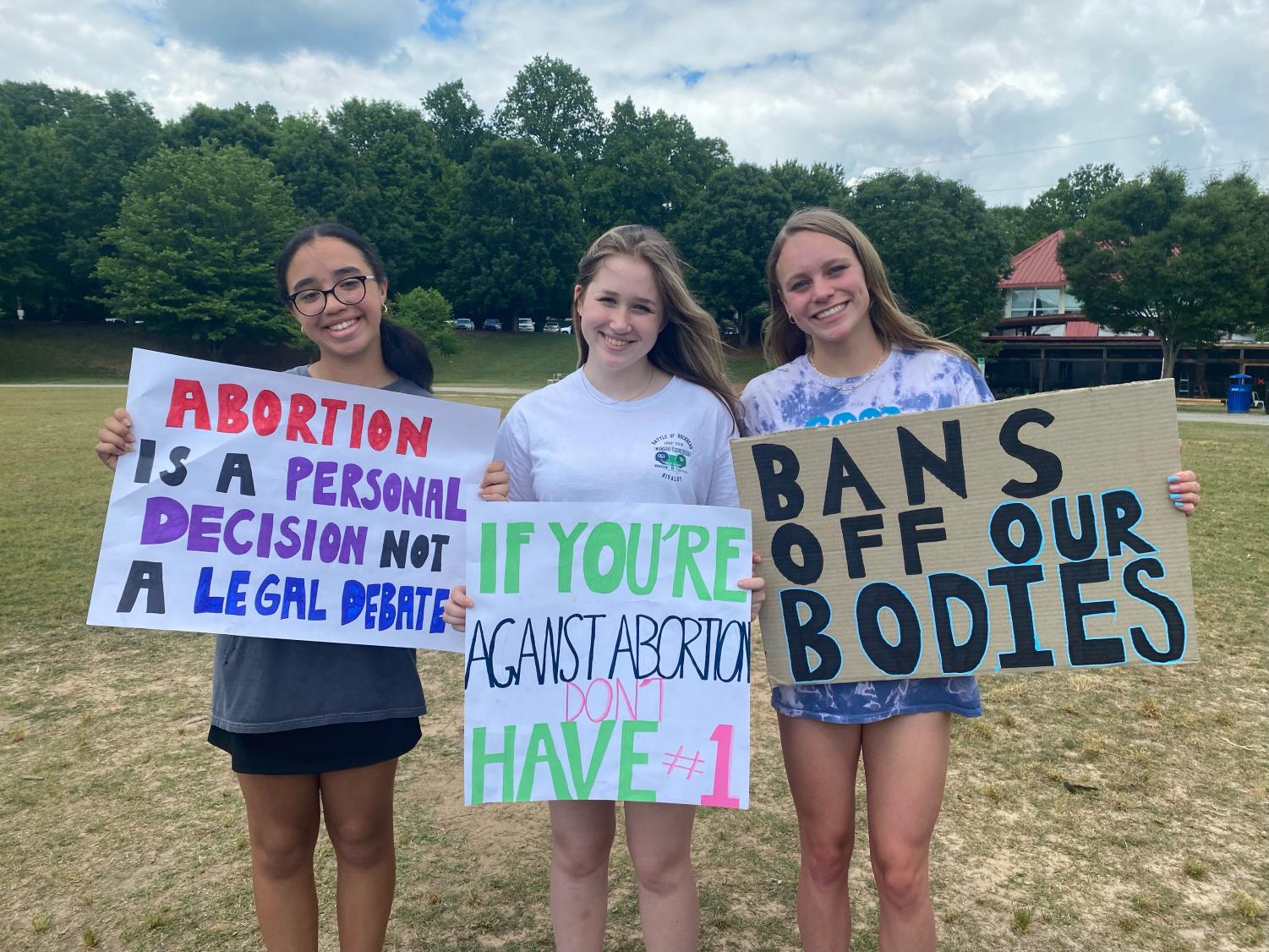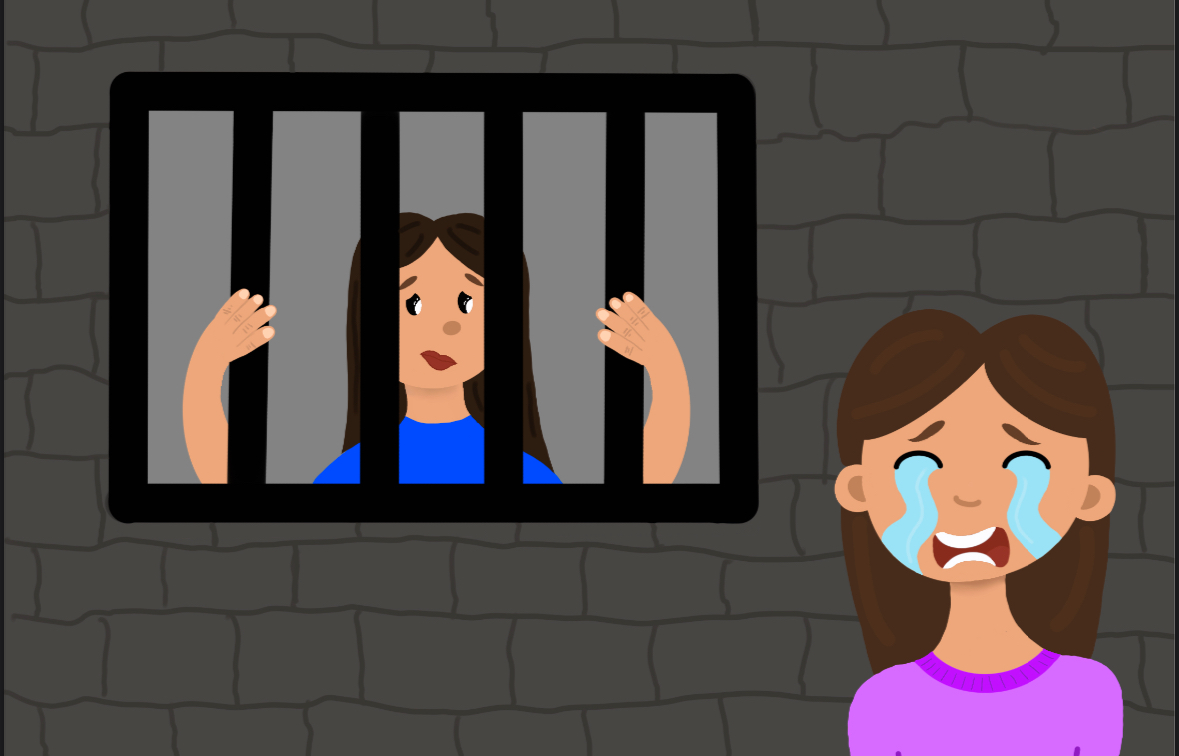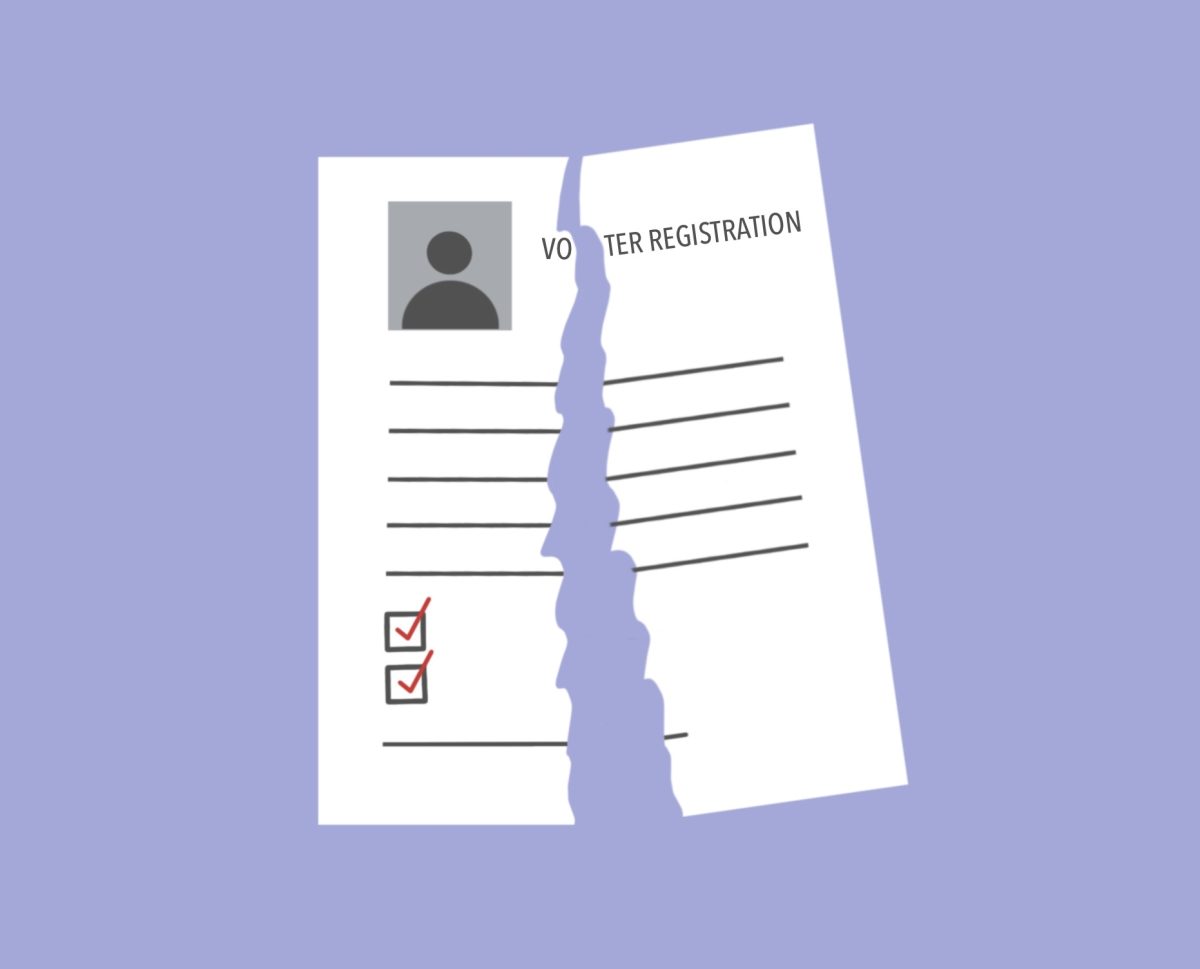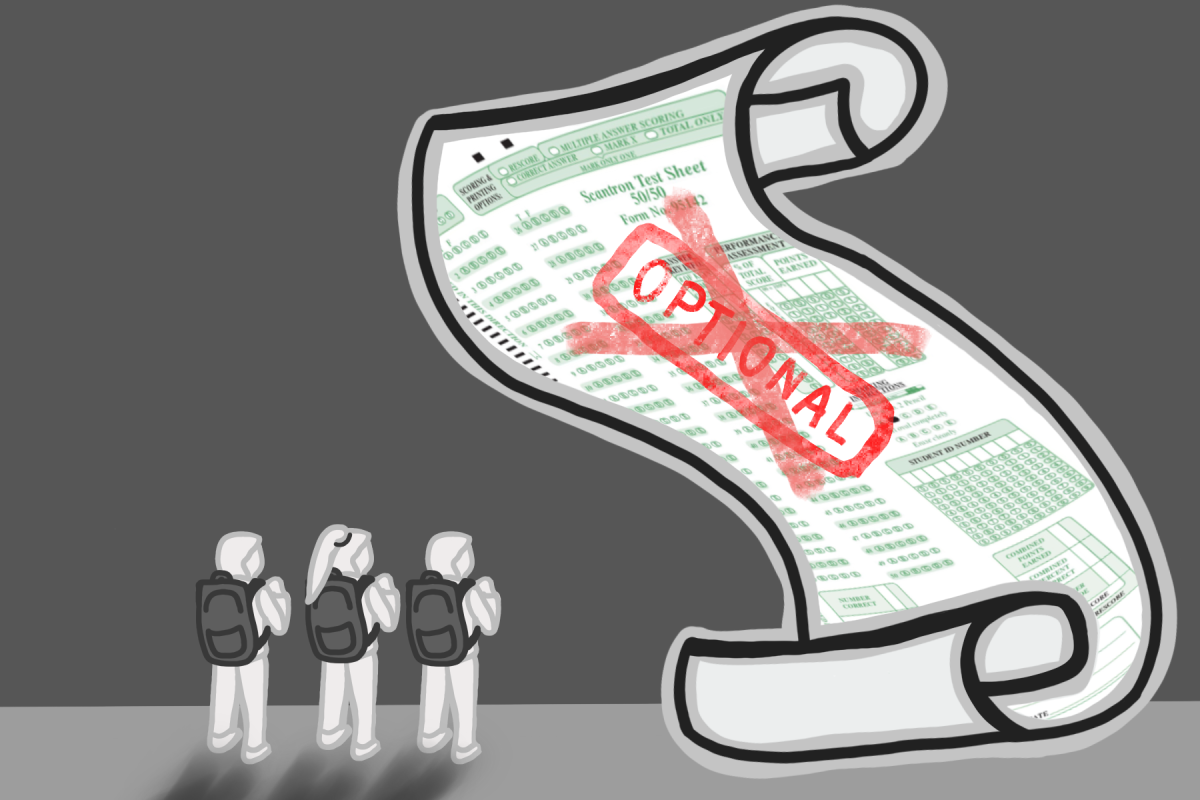In a historic decision, Fulton County Superior Court Judge Robert McBurney has ruled Georgia’s LIFE (Living Infants Fairness and Equality) Act went directly against women’s state constitutional rights, striking down the six-week ban.
This decision was driven by the little amount of time given to women to even discover a pregnancy before realizing they want to receive an abortion. Republican Governor Brian Kemp signed the LIFE Act into place in 2019, but it wasn’t formally brought into effect until July 2022. More recently, the Supreme Court of Georgia ruled that the LIFE Act would maintain its standing while a decision is deliberated over the ruling McBurney made.
Many women, including senior Kate Rebillot, feel concerned that something bad may happen to them.
“I am in support of allowing more time for processing; it has always stressed me out that if something did happen, I wouldn’t get the proper access or care,” Rebillot said. “Knowing now that the stipulations have the potential of becoming more relaxed eases my mind more for if something bad happened to me.”
Similar to Rebillot, sophomore Vivian Simmons shares concerns for the safety and wellness of women.
“I think being a high school student in a world where women don’t have a lot of access to the right resources to have an abortion since the new law I think there should be more access to care for abortion, or at least increased safety education, especially for young students,” Simmons said. “Things happen where there could be a need for abortion, and I think that there should be more access in case of those situations.”
Countdown
Senior Grant Weinstein acknowledges the pressures of making the choice to get an abortion in such a short period of time.
“If you find out, and then you are past the deadline, you are very limited in your options, and additionally getting an abortion is a big decision that one needs time to process; so, it would be good for people to have more than six weeks,” Weinstein said.
Rebillot said the government shouldn’t have a say in a woman’s right to abortion or force them into a rushed decision because of strict and limited time frames.
“Point blank, the government should not control women’s bodies,” Rebillot said. “I think that women need time to make a more informed decision and shouldn’t have to feel as rushed to make a decision.”
Senior Caroline Connors said the fact that McBurney was the one to make this change shows just how deep this issue has gotten.
“Men don’t understand what it’s like to fear pregnancy, to fear complications or reproductive illness; so, the fact that it was a male judge who suggested this change be made speaks volumes to the point to which this reproductive issue has gotten,” Connors said.
City limits
Weinstein said women should be afforded autonomy regarding their care.
“I know that there’s a lot of circumstances where some people may not have the means to get an abortion,” Weinstein said. “I don’t feel like it’s other people’s right to decide what others should do for their bodily wellness.”
Connors believes the six-week ban causes many difficulties for women attempting to receive safe abortions. Despite the exceptions made, there are a multitude of steps to get an abortion.
“So, if you live in the state of Georgia you don’t have an option beyond going through with a pregnancy if you can’t get an abortion out of state, which is the reality for a lot of women, especially if you’re in an abusive situation, and if it’s a woman under 18 or someone who doesn’t have a driver’s license or the money to get out of state, there are just a lot of moving parts that make it super difficult,” Connors said.
Additionally to the challenges Connors spoke about, many women face difficulty when attempting to get abortions after experiencing cases of rape or incest. Though abortions are technically allowed for those cases, Georgia law mandates they be reported to law enforcement before receiving approval for an abortion.
“Georgia law says you have to go to the police first, and if you want to use this exception; you’ve got to bring in a police report saying that you’ve told the police about this intimate situation in your life,” McBurney said.
Schools for sex education
In addition to general concerns about abortion rights and access for women, Simmons believes schools could do more for their students.
“I think Midtown doesn’t do a lot about sex education,” Simmons said. “Being in health class, I remember my teacher skimming over topics, including sex, and seemed embarrassed to talk to high school students about safety. I think Midtown could do a better job of talking to students about sex education. I think, in sex education, they should talk about abortions, safety and health concerns.”
Megan Bookspun, senior and Teen Action Group [Planned Parenthood organization] member, said she has concerns about the lack of sexual education.
“I would say that I’ve seen that there’s a lot of disparity in sex education, and a lot of the material is outdated, not specifically for Planned Parenthood, but I work with another nonprofit that teaches sex education to incarcerated teen kids in juvie (Youth Detention Centers),” Bookspun said. “Specifically, with that nonprofit, it’s so obvious how little most people know about sex education because the education standards are not up to date.”
Despite the disparity Bookspun has viewed in her time as a volunteer, she said Midtown does its best to educate students.
“I think Midtown does better than some other schools do because we have health mandated in our schools, and I know we learned stuff in elementary school, but I think there’s more that could be done,” Bookspun said. “I don’t think health was a very comprehensive class in terms of sex education, and it didn’t cover a lot, but I think going to a public school, they kind of do the best they can.”
Big Decisions
When Roe v. Wade [which gave women the right to privacy when deciding on whether to continue a pregnancy or not] was overturned in June 2022, the U.S. Supreme Court handed down the Dobbs decision [which gave the states the ability to decide about reproductive access, privacy rights, etc] which was enacted shortly after Roe v. Wade was overturned.
“There was no longer a Federal right that all the states had to honor,” McBurney said. “Georgia had on its books from 2019, a law, the LIFE Act [placed], that [sets the] cutoff at the time when an embryonic [fetal] heartbeat can be detected, and at that point, it is no longer okay for a woman to terminate a pregnancy outside certain emergency exceptions, and that’s about six weeks in.”
Connors said Roe v. Wade played a large role in protecting women’s rights and it being overturned still affects everyone.
“Frankly, I think Roe was so important in protecting women’s rights, and the second it was overturned it changed the lives of women across America,” Connors said. “Things will never be the same after Roe was overturned, no matter if you want to get an abortion or not, your life has been affected by this.”
A federal district court had ruled the LIFE Act was unconstitutional because of Roe, so once Dobbs overruled Roe, the 11th Circuit [a higher federal court in Atlanta, GA] said the district court got it wrong, and the LIFE Act was okay, thus leading to further action.
“A group of organizations [mostly healthcare providers for women], led by an organization called Sister Song [lead plaintiff in both the state and the federal litigation] says they have to go to state court because they just lost in federal court,” McBurney said. “In that lawsuit, Sister Song argues that the LIFE Act is unconstitutional under Georgia’s constitution, [not the federal constitution] because a six-week pregnancy termination ban violates the woman’s right to privacy, right to liberty and bodily autonomy.”
McBurney ruled the start of viability [when a fetus could survive outside the womb] would be the right cutoff for abortions, rather than when an embryonic heartbeat was detected.
“From my ruling, it is viability, so about 21 and a half weeks to 22 weeks, but
it’s about four times further out than where it is right now, the six-week mark, where, as it reads, many women don’t even know they’re pregnant at that point,” McBurney said.
Next steps
SisterSong made multiple arguments and had two rounds of litigation. McBurney found that law unconstitutional for technical reasons in 2022, but that got appealed and McBurney’s decision was reversed. McBurney wrote about what Georgia’s Constitution means and what women’s rights are, and what the rights of pregnancy are. McBurney stated the next steps.
“Ultimately, there’ll be a full-blown Supreme Court of Georgia, and that’ll be the final word because the feds are out of it now,” McBurney said. “The Georgia Supreme Court in the Sister Song case will say, this is the extent of a woman’s rights, privacy, liberty and bodily autonomy, and here’s the extent of the rights of pregnancy of an unborn child to resolve that. They might agree with me and say, here’s how you resolve it. They might agree with the attorney general, who was saying, the legislature got it right. It’s six weeks. It’s at the heartbeat.”
Bookspun is hopeful for the potential future of a 22-week ban, rather than a six-week ban.
“I think with the six-week ban being in place, most people would not know if they were pregnant, but also wouldn’t have had the tools to figure out their situation because of the lack of education, so now I am hopeful that the 22-week ban will be decided on by the Supreme Court and give people a much better opportunity to figure out their options,” Bookspun said.
Connors said no matter the situation, choosing to get an abortion is not an easy decision.
“Women will live their entire lives in trauma, experiencing trauma, because that is the way that society is built,” Connors said. “Getting pregnant when you aren’t ready is traumatic, having to exterminate a pregnancy is traumatic, especially if you’ve gone through a traumatic event, plus having to testify against someone who did something wrong to you just to prove you have a right to an abortion is traumatic; we need to do better for the women in Georgia.”















